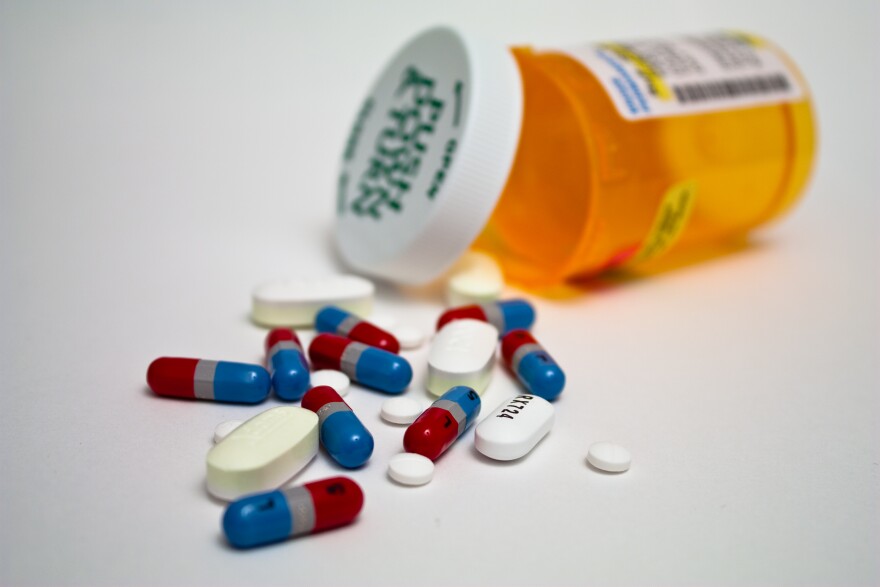"If you ask a 15-year-old who's never been addicted to drugs, 'would you take heroin?' [they'd say,] 'Oh my gosh no,'" says Missouri State Representative Holly Rehder (R-Sikeston).
"But after two years of addiction, and they can't afford to buy the pills anymore, and someone offers them heroin for ten bucks - it's not the bogeyman anymore."
For the past three years, Rep. Rehder has tried, unsuccessfully, to pass legislation to establish a prescription drug monitoring program in Missouri - the only state without such a program. Each time, the legislation has failed over privacy concerns of storing patient information in a database.
This year, Rep. Rehder is trying again. She sat down with KBIA and shared her personal connection with the issue.

[The following excerpts have been condensed and edited for clarity]
On her family's struggles with addiction:
My cousin died at 39 of a drug overdose. She left behind two beautiful children. My mother was addicted to prescription medication. My sister was a drug addict by he time she was 16. And my daughter [became addicted] as well.
On raising her children:
That was very commonplace for me [growing up] - drugs being around and in the home. It was just something I didn't want my kids to be around, and so I made changes. For my children to fall into that so easily - being raised in a middle-class home with two parents in the home, going to church multiple times a week, being made to go to school every day whether you like it or not, told you have to get a part-time job, teaching [them] what you think of as becoming a 'responsible adult' - and my daughter fell into it very easily.
On her daughter's battle:
When my daughter was 17, [she was an] excellent student, already accepted into college, worked multiple jobs, a very hard working girl. [She] cut her thumb at work and got it stitched up, and they gave her a prescription for Loracets. Coming from the genes on both sides of her parents - there are addicts through both sides of her family - she started buying them after that. And so we are 13 years now of drug addiction, in and out of rehab. She's been clean just over a year. My grandson was born with opiates in his system. He is very healthy, but I have custody of him. This is something that affects all social backgrounds.
On addressing addiction:
When the drugs take over, it completely changes everything. Our families are being torn apart, lives are being destroyed, parents are spending beaucoups of money because of legal issues with their kids, our penal systems are full of addicts. We have got to start looking at this differently. We have got to start realizing that this isn't something we can close our eyes and turn our head because it's not going to affect us. It's affecting us.





